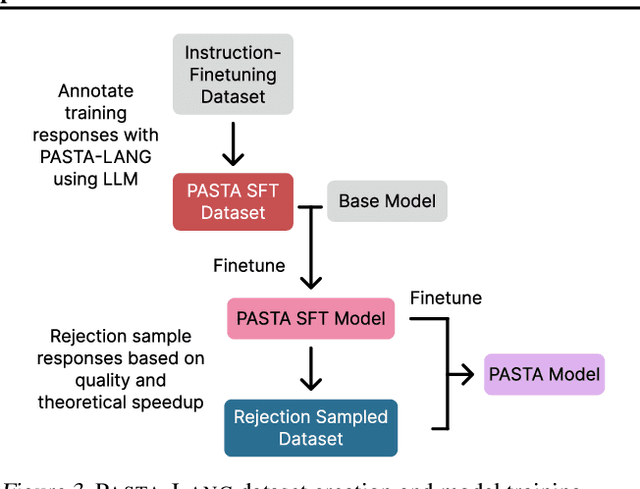Learning to Keep a Promise: Scaling Language Model Decoding Parallelism with Learned Asynchronous Decoding
Paper and Code
Feb 17, 2025



Decoding with autoregressive large language models (LLMs) traditionally occurs sequentially, generating one token after another. An emerging line of work explored parallel decoding by identifying and simultaneously generating semantically independent chunks of LLM responses. However, these techniques rely on hand-crafted heuristics tied to syntactic structures like lists and paragraphs, making them rigid and imprecise. We present PASTA, a learning-based system that teaches LLMs to identify semantic independence and express parallel decoding opportunities in their own responses. At its core are PASTA-LANG and its interpreter: PASTA-LANG is an annotation language that enables LLMs to express semantic independence in their own responses; the language interpreter acts on these annotations to orchestrate parallel decoding on-the-fly at inference time. Through a two-stage finetuning process, we train LLMs to generate PASTA-LANG annotations that optimize both response quality and decoding speed. Evaluation on AlpacaEval, an instruction following benchmark, shows that our approach Pareto-dominates existing methods in terms of decoding speed and response quality; our results demonstrate geometric mean speedups ranging from 1.21x to 1.93x with corresponding quality changes of +2.2% to -7.1%, measured by length-controlled win rates against sequential decoding baseline.
 Add to Chrome
Add to Chrome Add to Firefox
Add to Firefox Add to Edge
Add to Edge